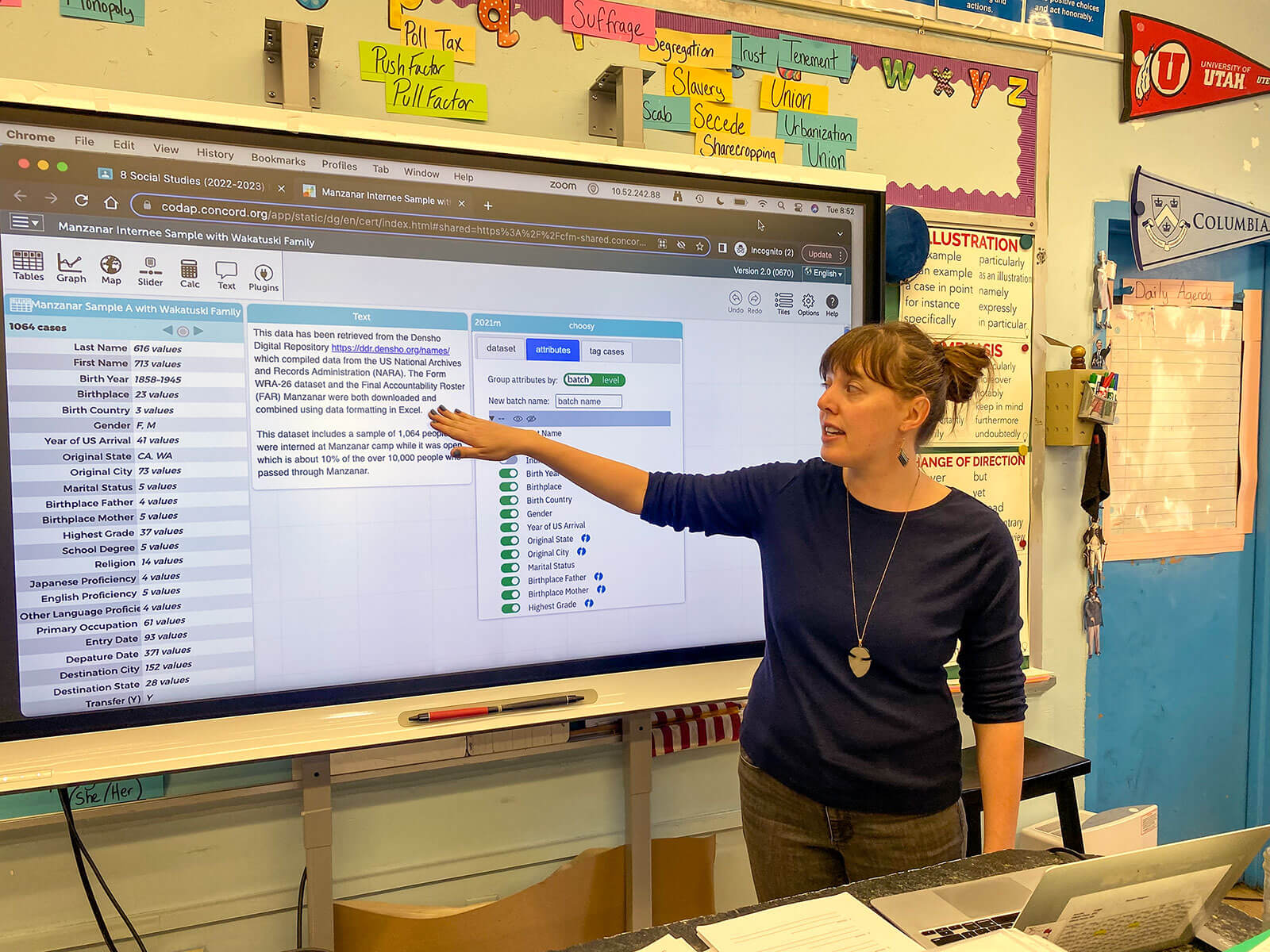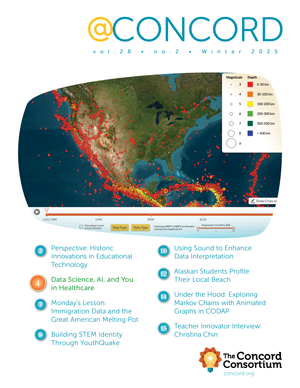Teacher Innovator Interview: Rachel Folger
Middle school social studies teacher, New York City
Rachel Folger laughs when she recounts the time one of the students in her eighth grade social studies class exclaimed, “Whoa, Ms. Folger! Did you know that this is just what we’re doing in math?” Rachel is thrilled that her students—who typically “walk through their day in these very isolated subject areas”—are making connections across the curriculum. As part of our Contextualizing Data Education via Project-Based Learning (DataPBL for short) project, she is integrating datasets into a module on the Japanese American internment and having her students use CODAP to explore the data with tables, maps, and graphs. And, yes, she knows that her students are also analyzing graphs in their math class.

A politics junkie in college, Rachel had planned on a career in law. Just before graduation, however, she decided to become a civics education major and go into teaching. She added a fifth year to her studies and became certified to teach history. After earning her degree, Rachel applied to Teach for America and was assigned to a middle school in the Manhattan neighborhood of Washington Heights. Although she had expected to move to the high school level “because those students would soon become voters,” she loved the “eagerness and curiosity” of middle school students, and has continued to teach seventh and eighth graders for the past sixteen years.
Rachel is a firm believer in combining not just humanities and STEM, but also science and social studies. According to Rachel, these subjects all exist together. As a social studies teacher with an eye on helping students make connections between historical and current events, she wants students to understand real-world data, especially through conversations around the importance of media literacy and “fake news.” Her goal is to help students navigate “all the graphs and pie charts they see in the news.”
Although she admits to shying away from data herself in the past, Rachel is now more confident with CODAP and with allowing her students to find patterns in data, thanks to support from the DataPBL team and from “having the space to talk to other teachers and think collaboratively.” The DataPBL project, which is infusing data experiences into two eighth grade EL Education modules—Lessons from the Japanese American Internment and Food Choices—aims to foster just the kind of curriculum intersections Rachel describes.
“Using datasets has been the tool that we’ve been looking for,” says Rachel. Now, in addition to using historical texts and photographs, she can incorporate data as a source of information for students to investigate and humanize history. Students can move from looking at one data point or case to looking for larger patterns and trends. Rachel explains, “It’s exciting to situate stories in the data.”
Rachel is also excited to be part of a shift in post-pandemic educational goals. She believes teachers and administrators are now “looking at students more holistically,” helping them consider who they are going to be in the world. She is especially interested in ensuring that students have access to civic society and feel confident asking questions about what’s going on in the world.
Rachel’s own world has not strayed much since her Teach for America days. She still lives and teaches just ten blocks from her initial teaching assignment in the same New York City neighborhood. Even in a place as crowded as the Big Apple, she loves the community feel. But with a “heart for the mountains”—Rachel grew up in Montana—she summers in Big Sky Country. Of course, big skies call for big dreams, and Rachel is already dreaming about other places to incorporate CODAP, including more modules in her social studies class and in other classes, be it math or beyond.
This material is based upon work supported by the National Science Foundation under grant DRL-2200887. Any opinions, findings, and conclusions or recommendations expressed in this material are those of the author(s) and do not necessarily reflect the views of the National Science Foundation.

